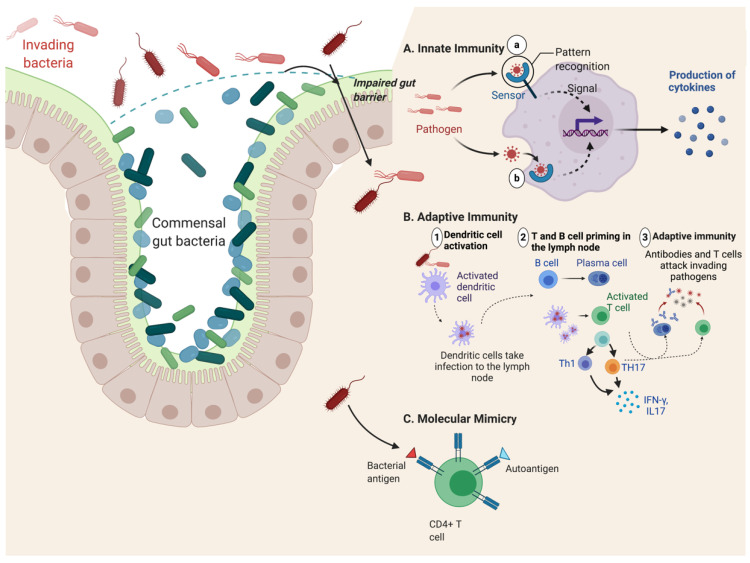Figure 2.
Contribution of gut dysbiosis to autoimmune disease. Due to impaired gut barrier function, pathogenic bacteria can invade the gut lumen and promote overactivation of innate and adaptive immune responses. (A) Innate immunity is activated by exposure to bacteria present in the gut tissue and circulation, resulting in excess production of proinflammatory cytokines. (B) Bacterial antigens can be presented to CD4+ cells by dendritic cells, leading to the activation of different T cell subtypes (Th1 and Th17) and production of cytokines. B cells are also activated either directly, or through interaction with antigen-presenting dendritic cells, leading to their differentiation into plasma cells and the production of anti-microbial antibodies. (C) Bacterial antigens can also provoke autoimmunity by molecular mimicry. Shared sequence similarity between foreign- and self-peptides results in the cross-activation of autoreactive T or B cells by a pathogen-derived antigen. The figure was adapted from “Keystone Gut Microbiota Species Provide Colonization Resistance to Invading Bacteria”, by BioRender.com (2020), retrieved from https://app.biorender.com/biorender-templates. Abbreviations: IL, interleukin; TH-1, T helper type 1; TH-17 T helper type 17.

